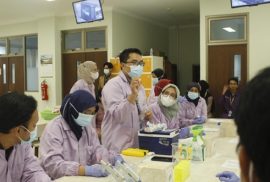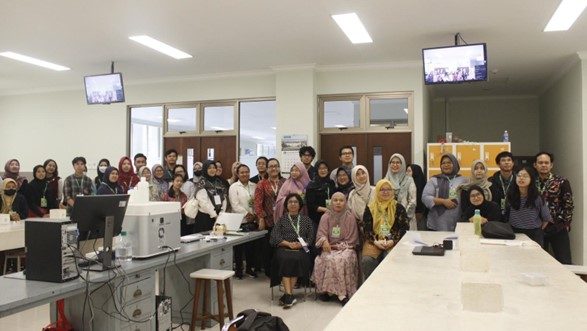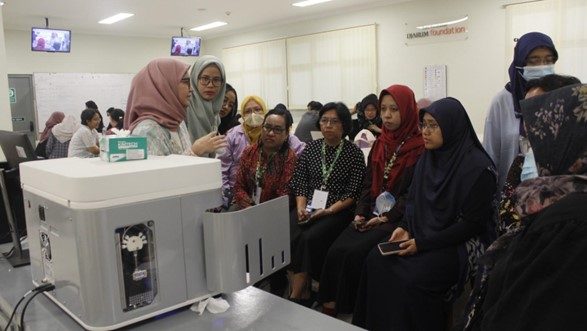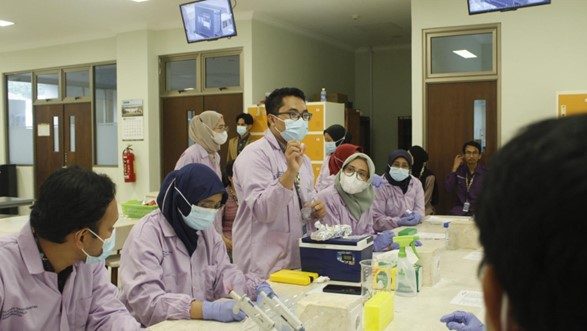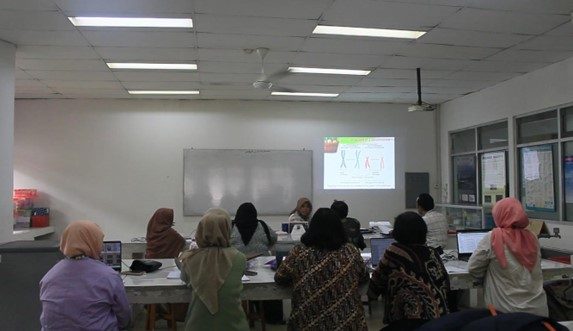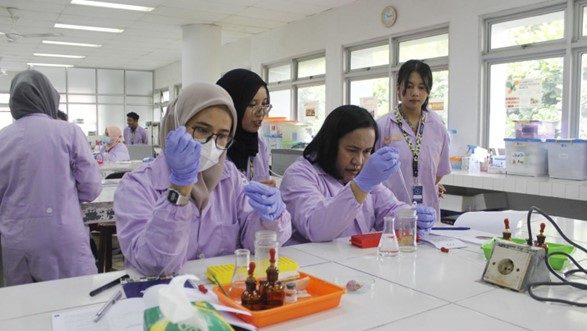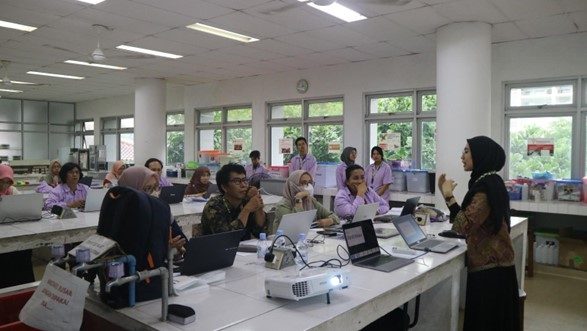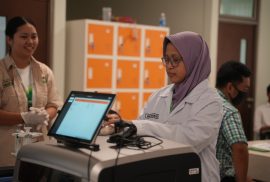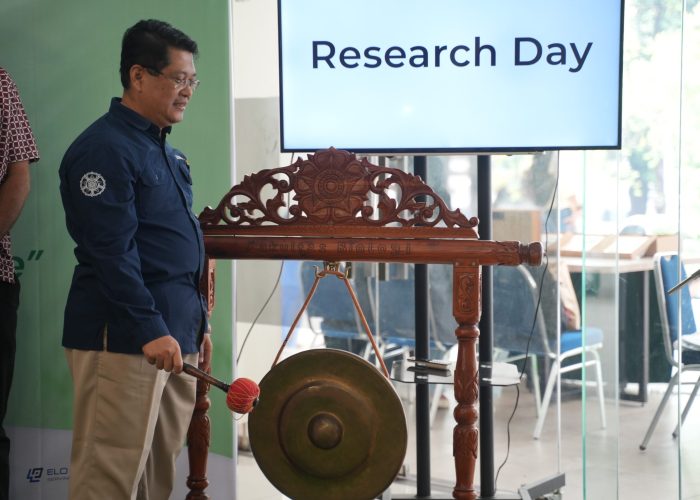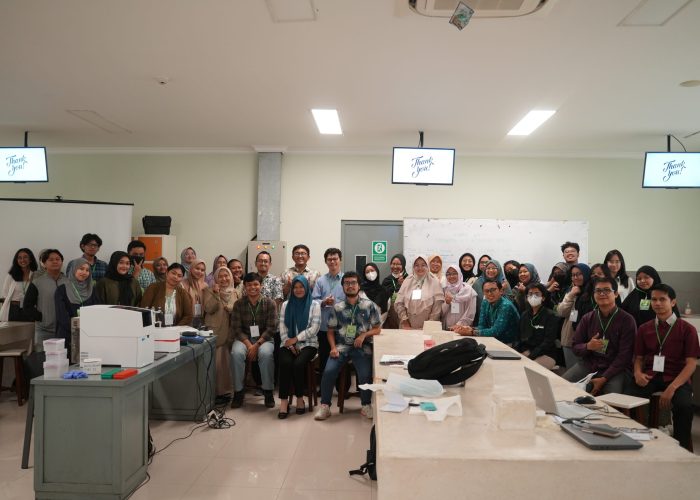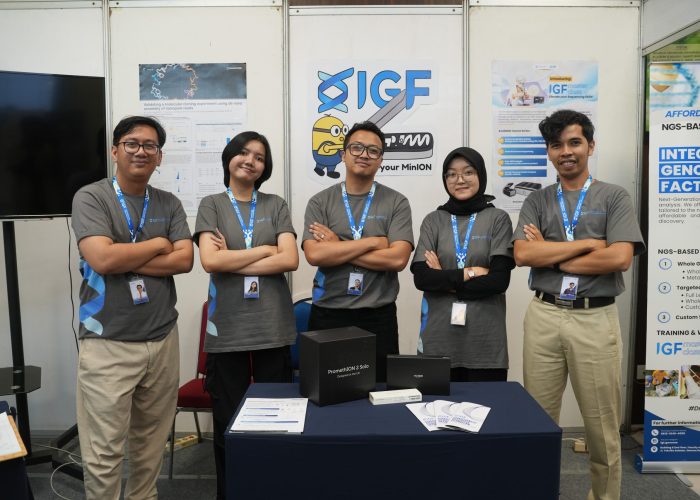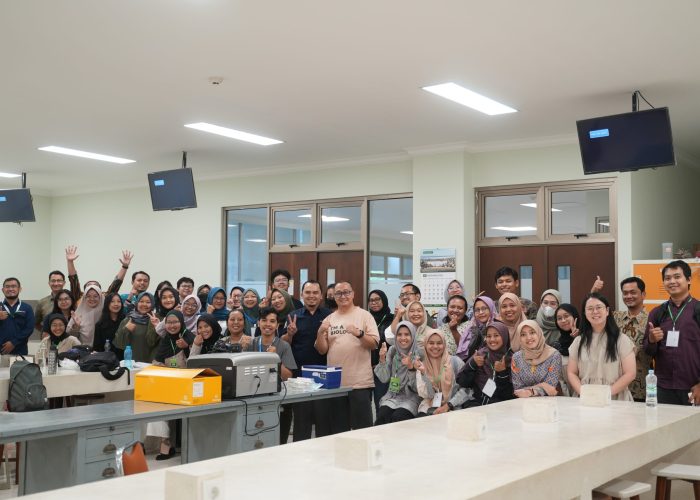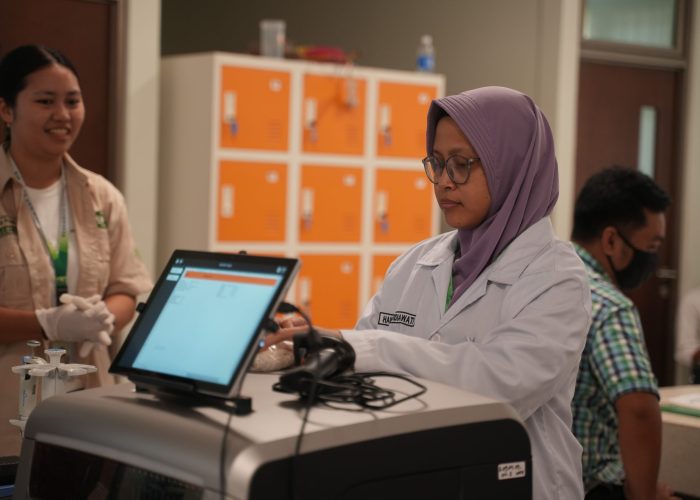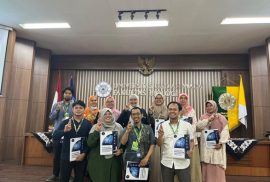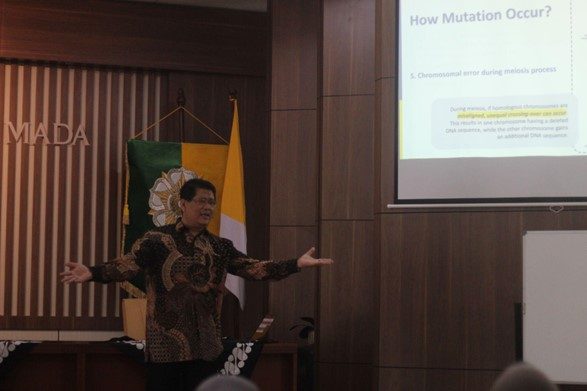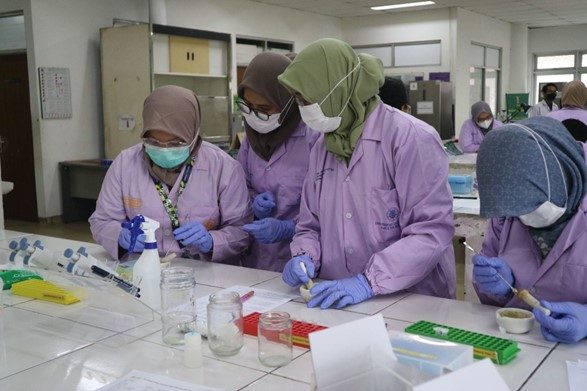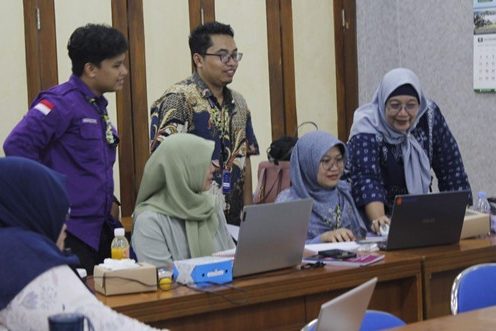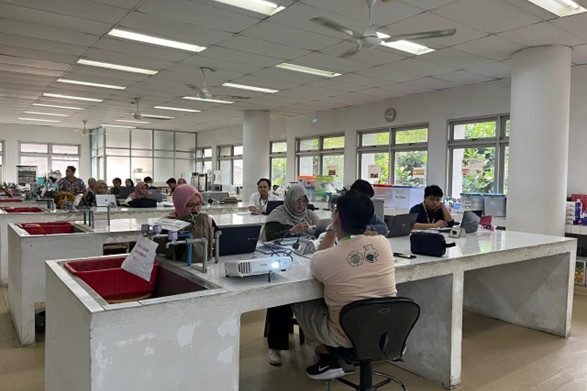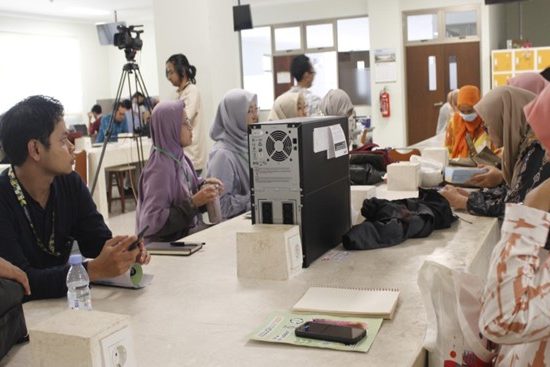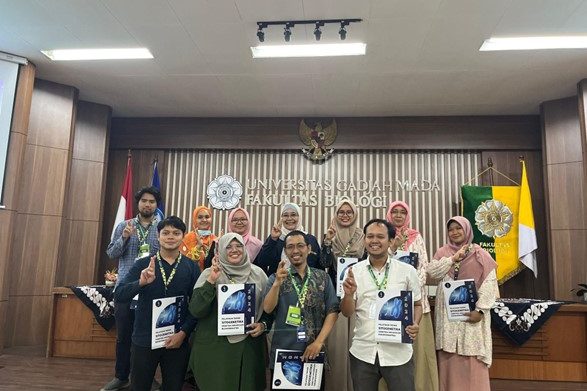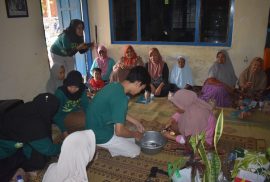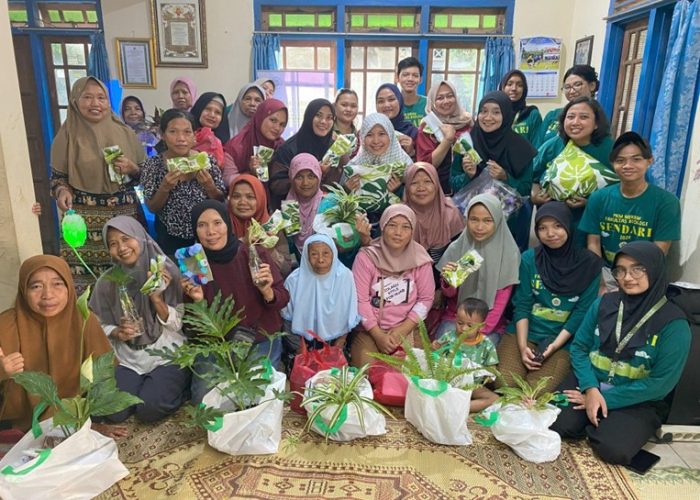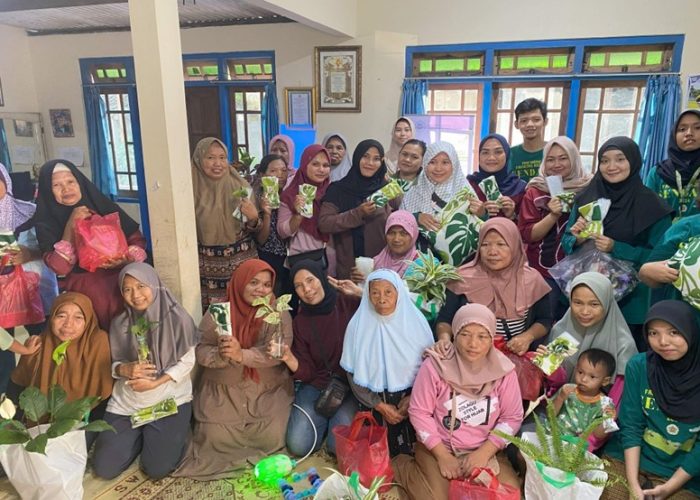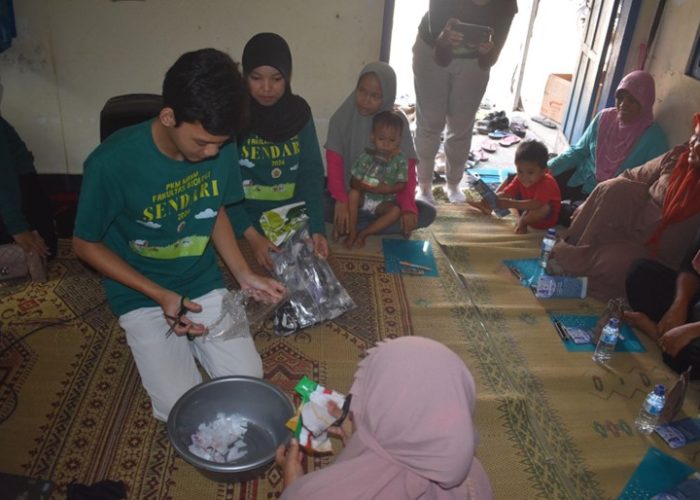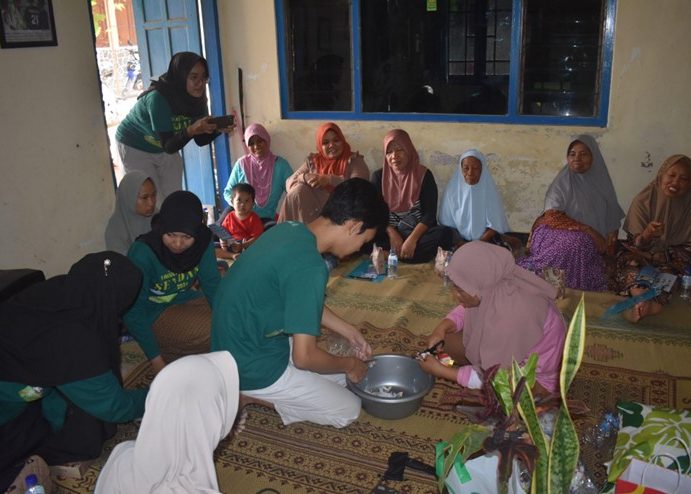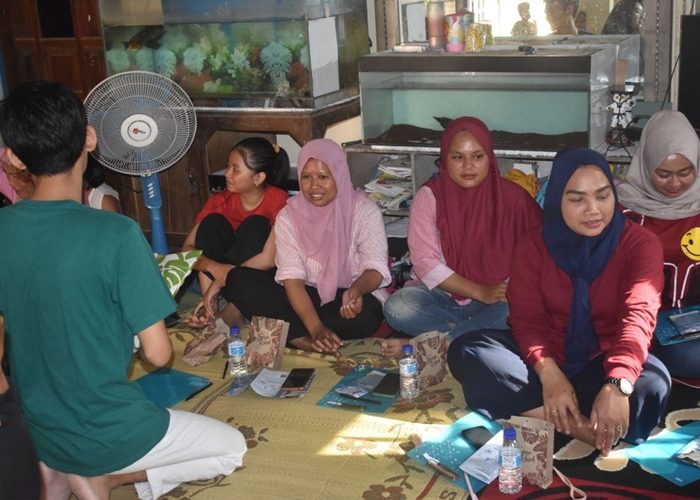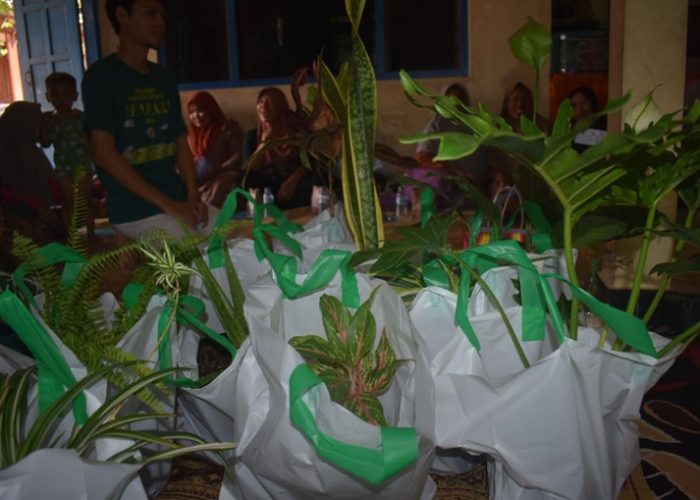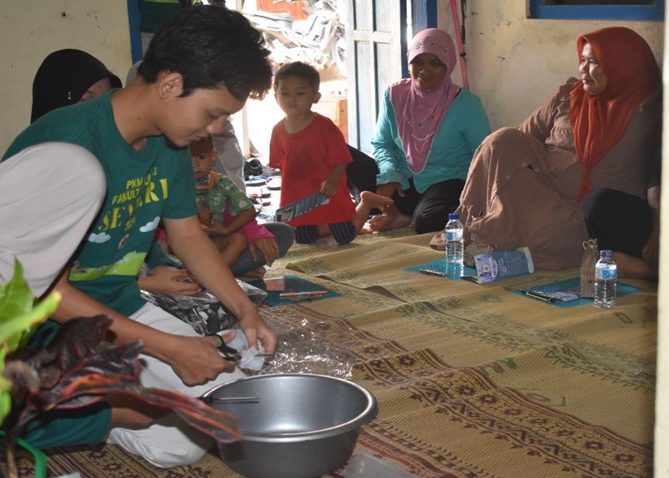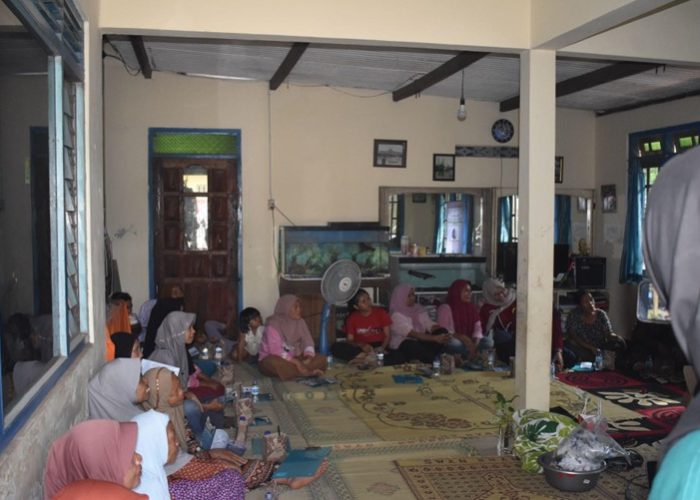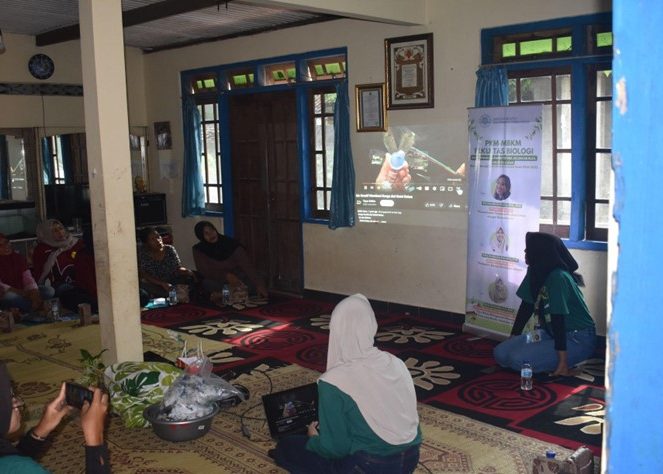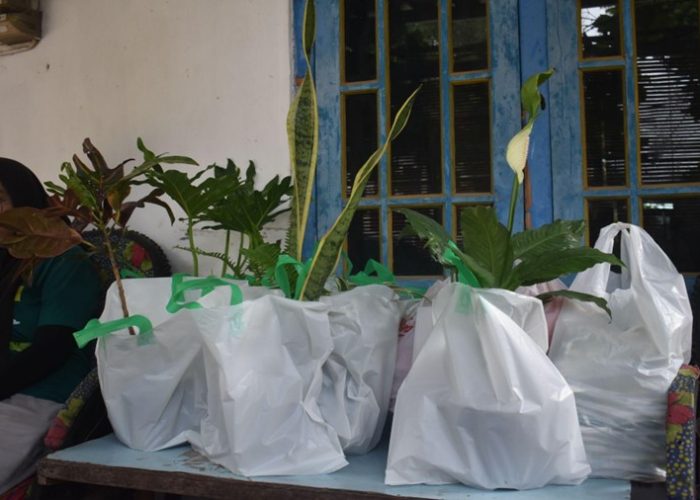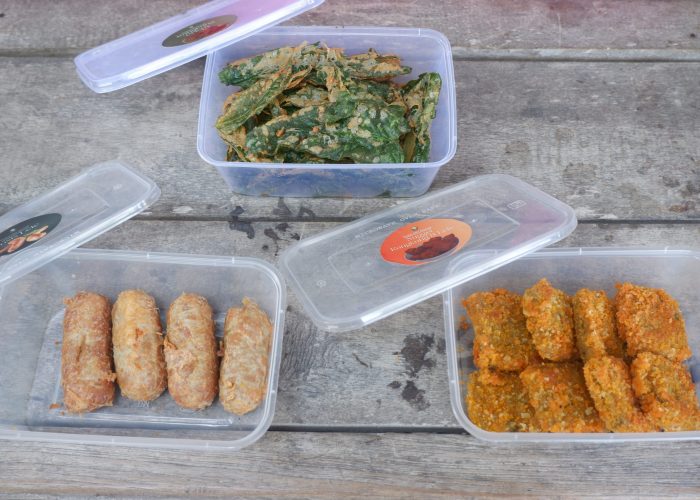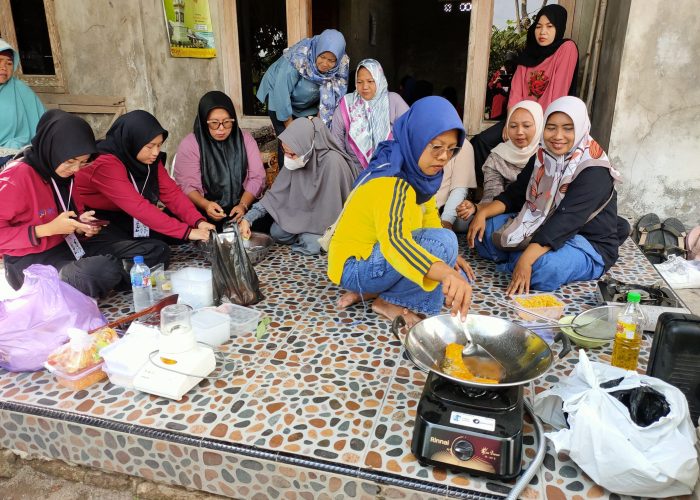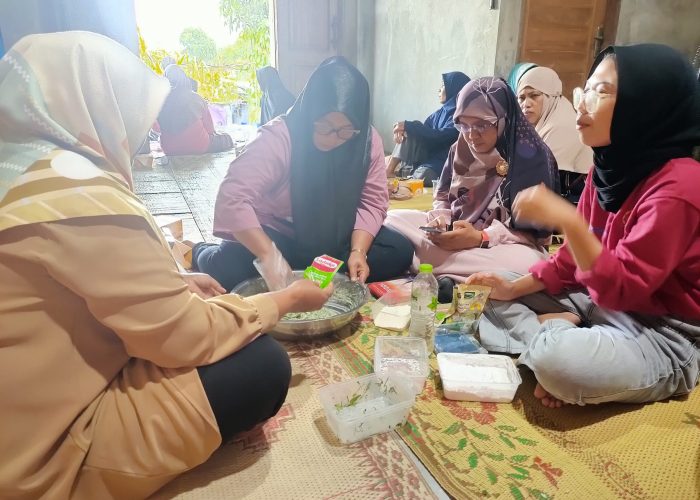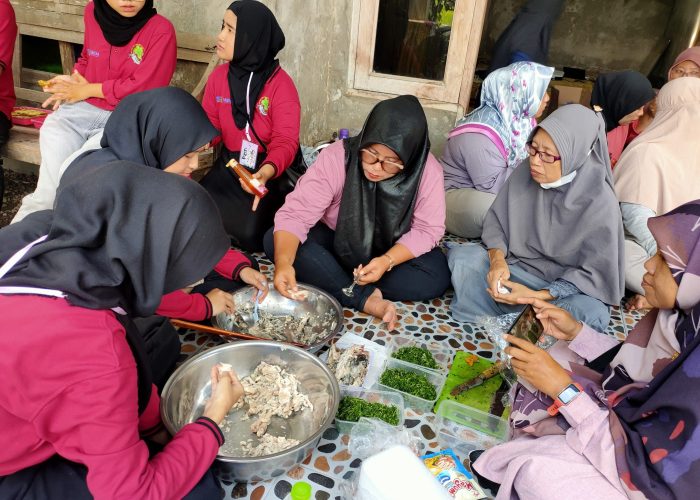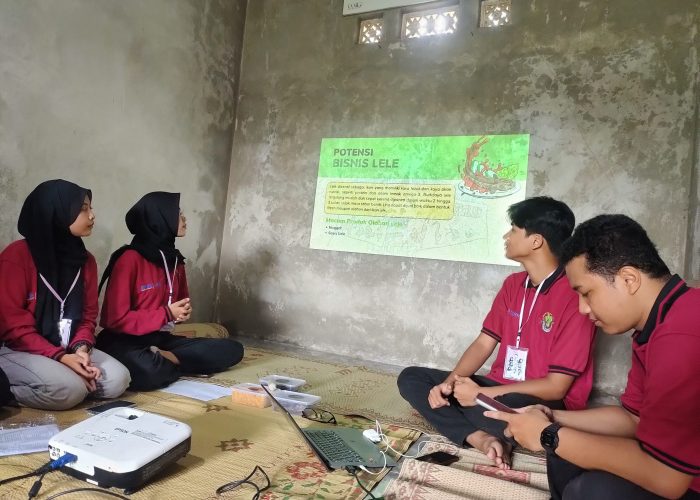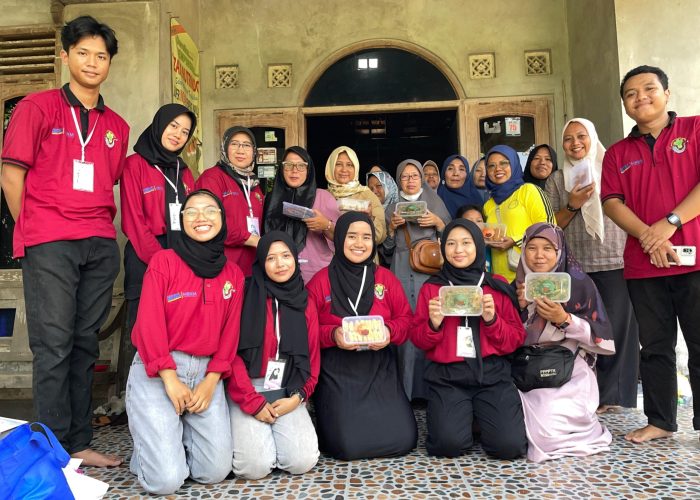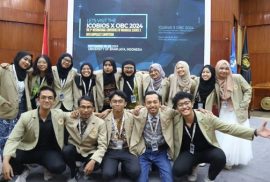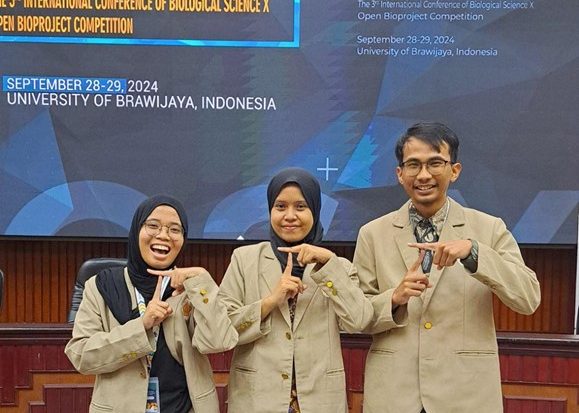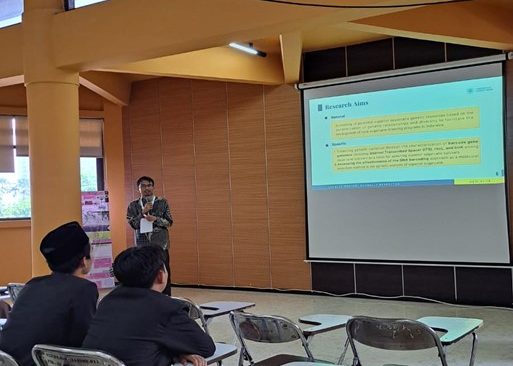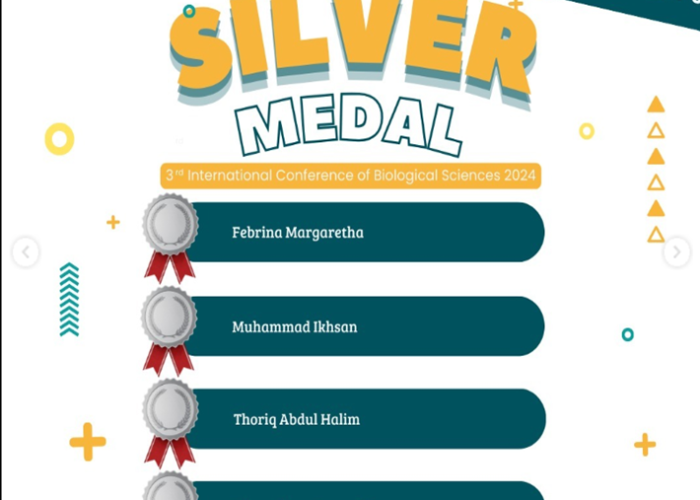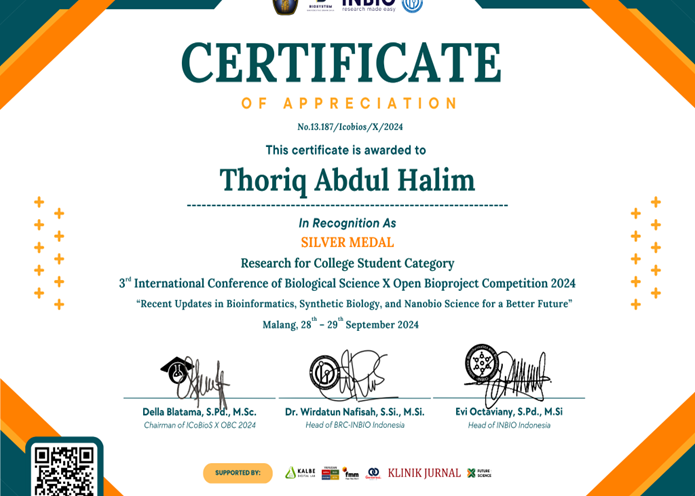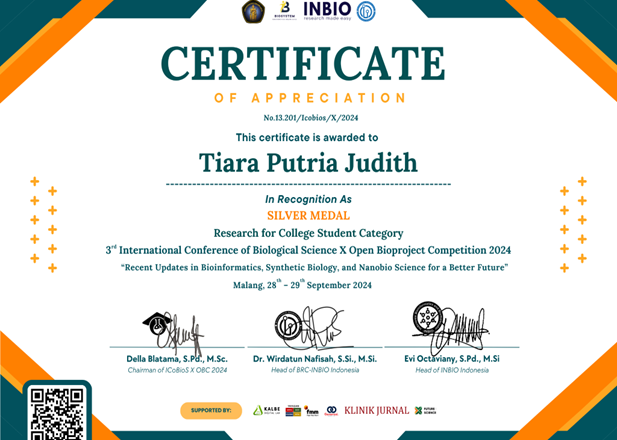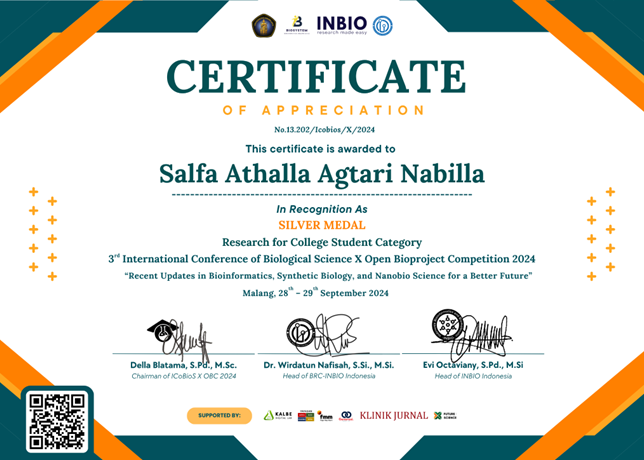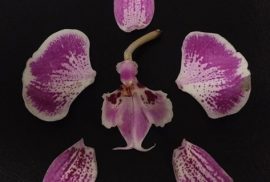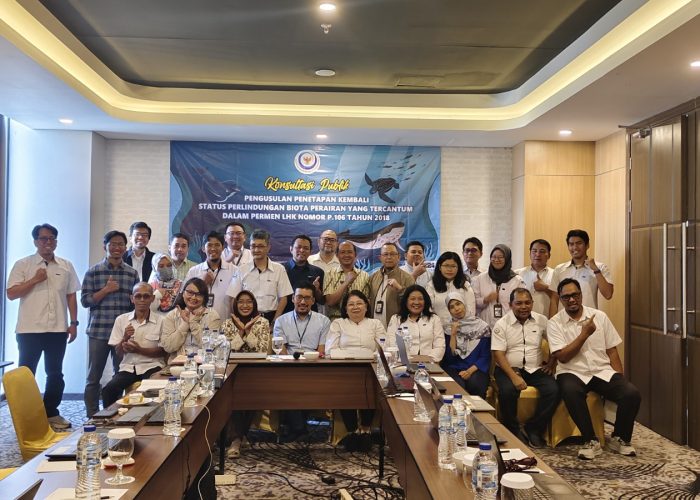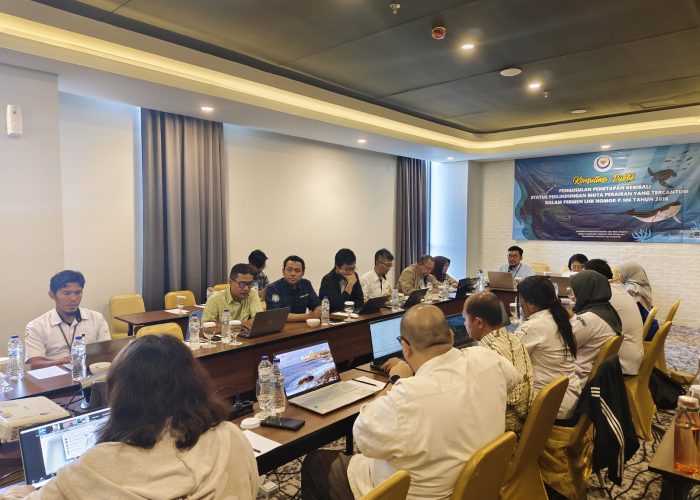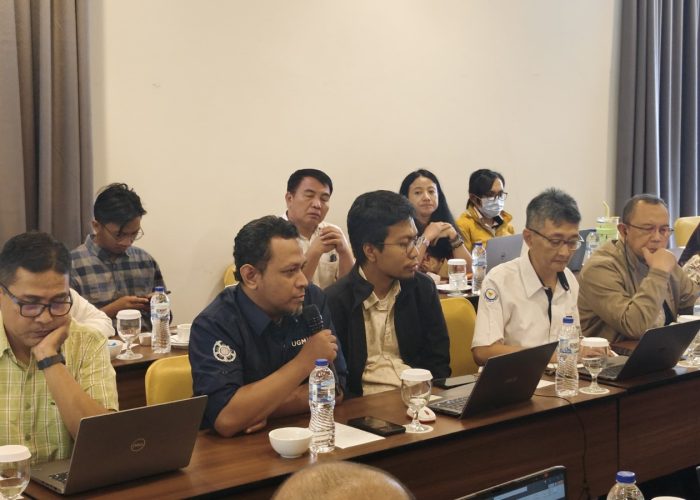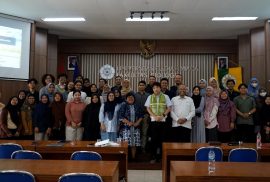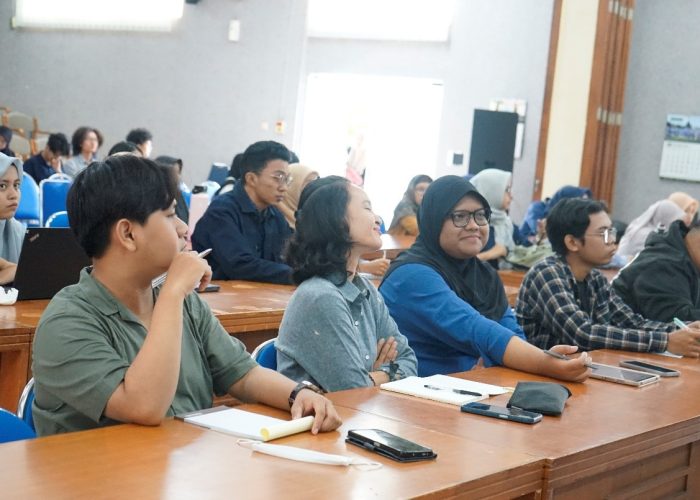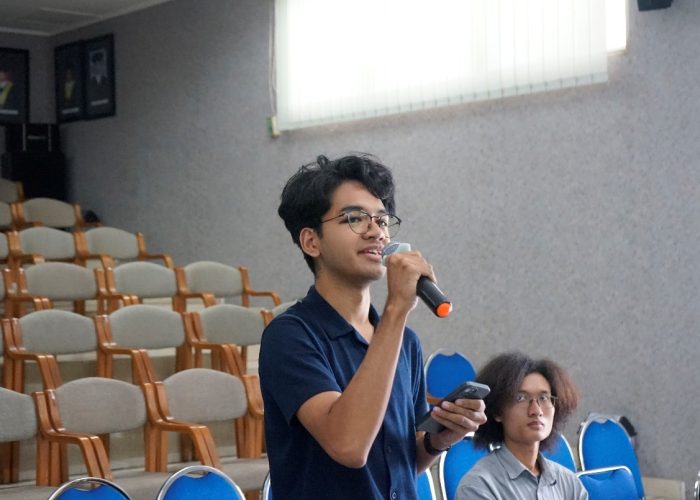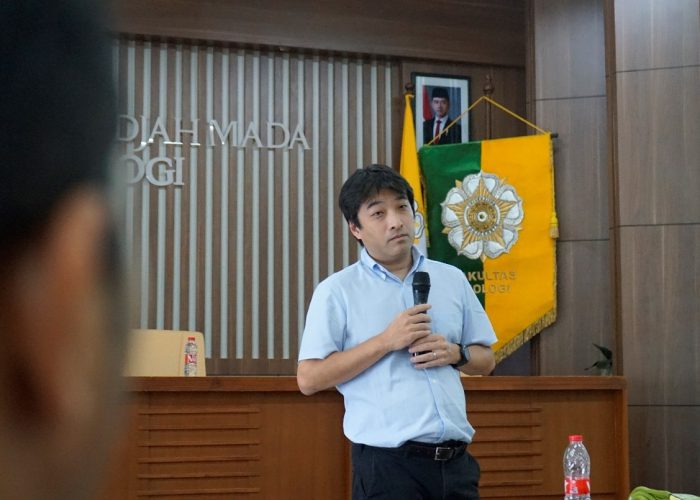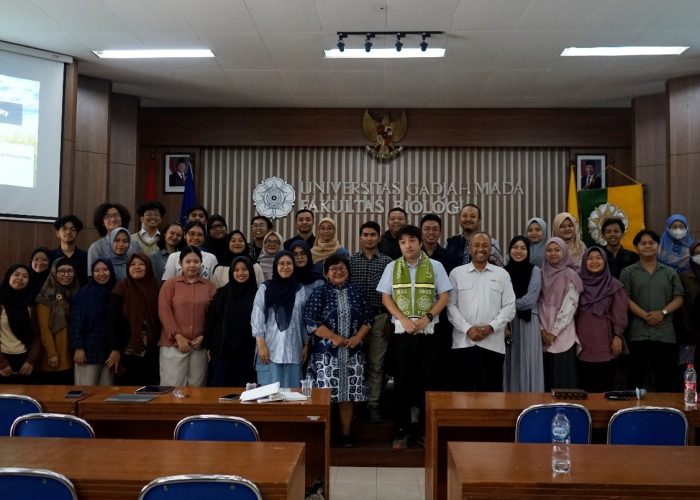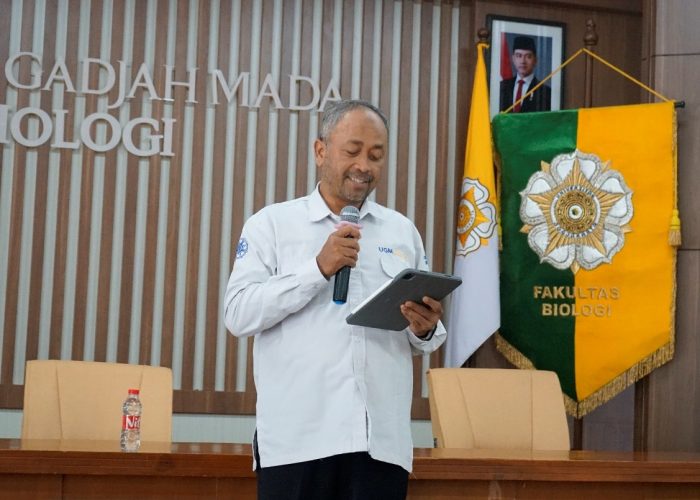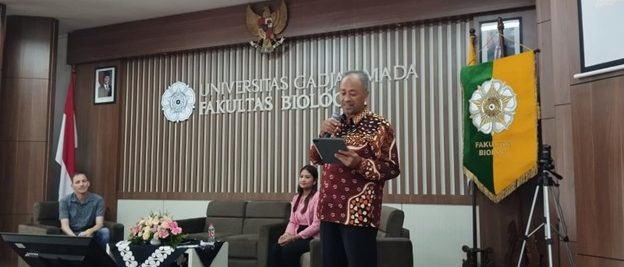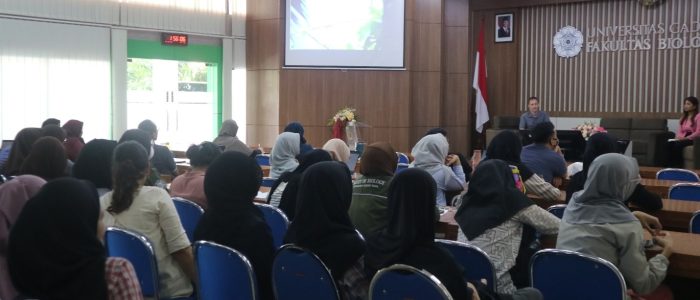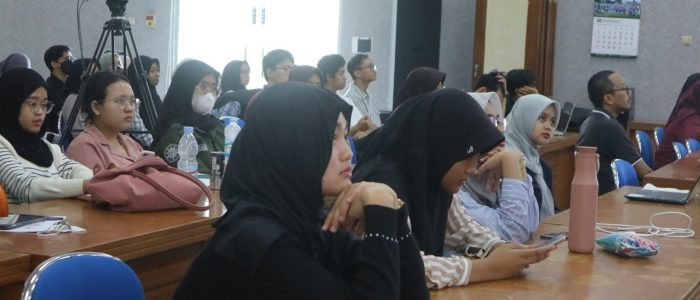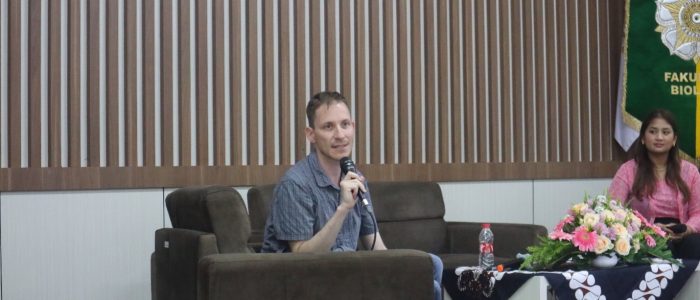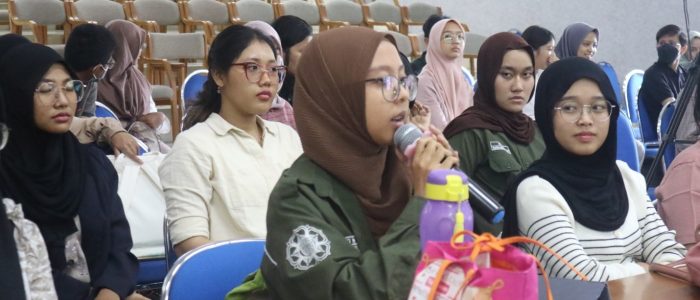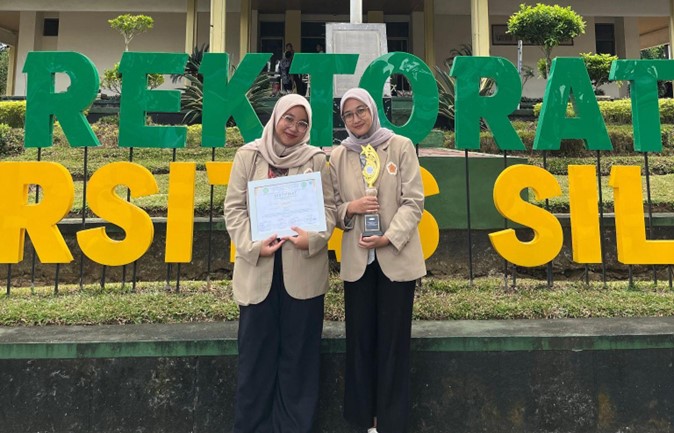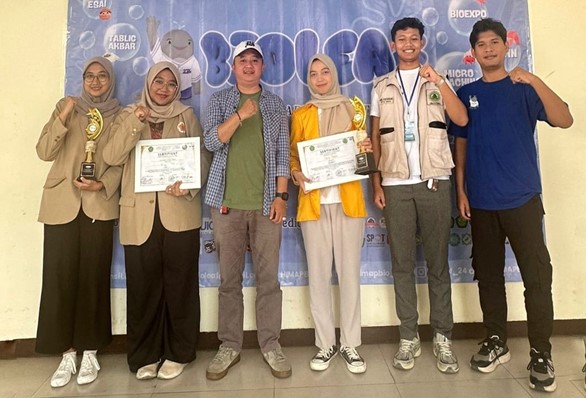On Thursday-Friday, November 14-15 2024, a training on Cytogenetics, Molecular Genetics, and Bioinformatics titled “Chromosome Analysis: Flow Cytometry Method, Fluorescence Technique & Squash Method” was held. The event is located at the Genetics and Breeding Laboratory Faculty of Biology UGM, and Teaching Lab Faculty of Biology UGM. This event was attended by 11 participants from various professional backgrounds, such as researchers and lecturers from various institutions in Indonesia. These events became a training forum for the participants to increase their knowledge and skills in the molecular field.
On the first day, Wednesday, November 14, 2024, the activity began with registration of participants and opening by the Dean of Faculty of Biology UGM, Prof. Dr. Budi Setiadi Daryono, M.Agr.Sc., at the Auditorium of Tropical Biology, Faculty of Biology UGM. On this first day, participants fully participated in activities in the Faculty of Biology UGM Research Day series, which was about Fluorescence and Flow Cytometry at the Teaching Lab. The activity began with an explanation of the advanced microscope and continued with sample preparation for analysis using Flow Cytometry. The activity ended with closing at the Auditorium of the Faculty of Biology UGM for an explanation of the next day.
On the second day, Friday, 15 November 2024, the activity began with re-registration of participants at the Genetics and Breeding Laboratory, Faculty of Biology UGM. On this second day, participants were given a lecture on Genetic Variation based on Chromosomal Characters by Mrs Ganies Riza Aristya, S.Si., M.Sc., Ph.D. Afterwards, participants practised on Slide Preparation including the process of fixation, maceration, staining, and squashing on Allium ascalonicum root samples and some samples that the participants brought. The activity was followed by data analysis practices regarding karyotyping and idiogram making. Afterwards, the event was closed by handing over certificates to participants at the Genetics and Breeding Laboratory, Faculty of Biology UGM.
This event also supports the Sustainable Development Goals (SDGs) programme, especially the 4th point on Quality Education, by increasing knowledge and skills in modern genetic techniques, such as Chromosome Analysis: Flow Cytometry Method , Fluorescence Technique, and Squash Method. In addition, this event is also in line with point 9 regarding Industry, Innovation, and Infrastructure because it encourages the advancement of research and innovation in the field of molecular genetics and bioinformatics in Indonesia. This event also aims to strengthen collaboration between participants from various institutions in Indonesia and the Faculty of Biology UGM, which also supports the achievement of the 17th point of SDGs on Partnerships to Achieve Goals.

